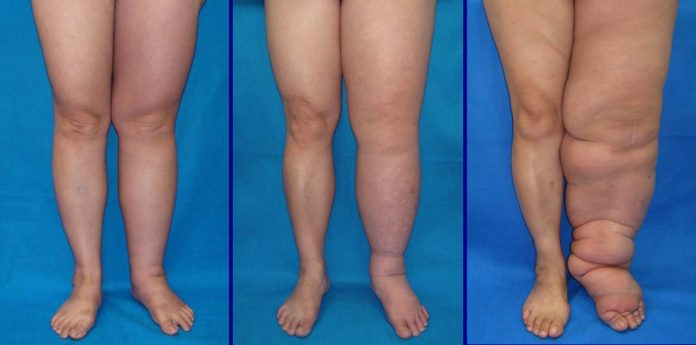An inflammation reducing drug known for long can work in lymphedema, a common but often ignored condition
Two clinical trials led by researchers at the Stanford University School of Medicine showed that ketoprofen, an inflammation-reducing drug, can effectively treat symptoms of lymphedema and help ease the daily burden of care.
“Ketoprofen restores the health and elasticity of the skin,” said Stanley Rockson, MD, lead author and professor of cardiovascular medicine at Stanford. “I believe it will reduce recurrent infection. It can also reduce swelling.”
The findings of the two clinical trials were published in JCI Insight.
Lymphedema is a common but often ignored condition that stems from a damaged lymphatic system and results in swelling in one or more parts of the body, usually the legs. It can be hereditary or it can occur after a surgical procedure, infection, radiation or other physical trauma. Lymphedema is commonly found in sufferers of filariasis in India. The swelling, caused by a buildup of lymph fluid within the various layers of the skin, increases the risk of infections and can cause debilitating pain and a thickening of the skin that can restrict movement. There is no cure, and there has been no drug therapy available.
Lymphedema is commonly found in sufferers of filariasis in India. The swelling, caused by a buildup of lymph fluid within the skin, increases the risk of infections
Presently, the only available treatment for lymphedema has been to wear compression garments; use the electric pump, which moves the excess fluid from leg back into the bloodstream; or get massage therapy to suppress the swelling, which can occur throughout the body.
Millions of people worldwide suffer from the condition, many from the aftereffects of cancer treatments. Thirty percent of women treated for breast cancer get lymphedema, usually as a result of radiation treatment and lymph node removal, according to the American Cancer Society.
Years ago, Rockson, had created a mouse model for lymphedema – the disease would manifest in the animals’ tails, and when treated it with ketoprofen, a nonsteroidal anti-inflammatory drug, or NSAID, it reversed the lymphedema.
After positive results in animal models, ketoprofen was tested in this two human trials. The first trial had 21 participants who took it orally for four months. Researchers performed skin biopsies at the beginning of the trial and then four months later at the end of the trial as a measurement of disease severity.
Reversal in the disease process in the skin and dramatic reductions in skin thickness was noted, which led to the second double-blind, placebo-controlled study with 34 participants.
The second trial further validated that the drug can reduce thickening of the skin. Results showed that ketoprofen made the skin healthier and more elastic, Rockson said.
Anecdotally, the patients who were treated with ketoprofen saw a dramatic decrease in infections.
“This new treatment doesn’t cure lymphedema, but our studies show it has the capacity to make the illness more livable, more workable,” Rockson concluded.



Good article about pain killer drugs and it’s side effects
Lymphaedema can also be caused elephantiasis. You need to rule that out as well.